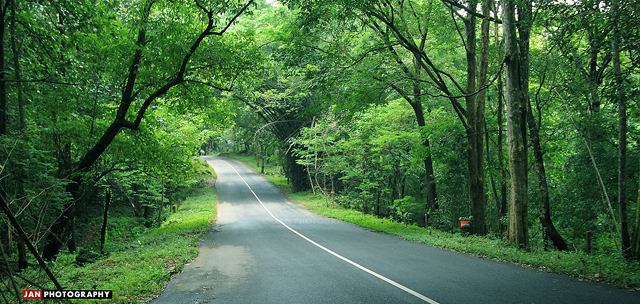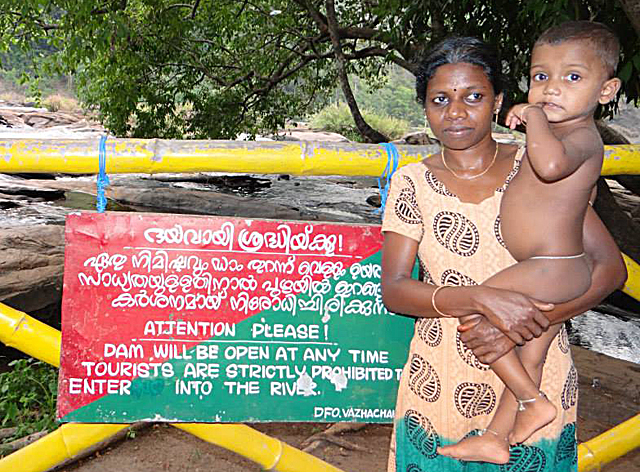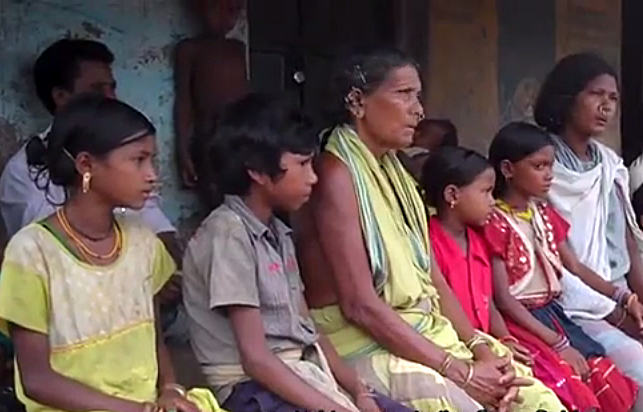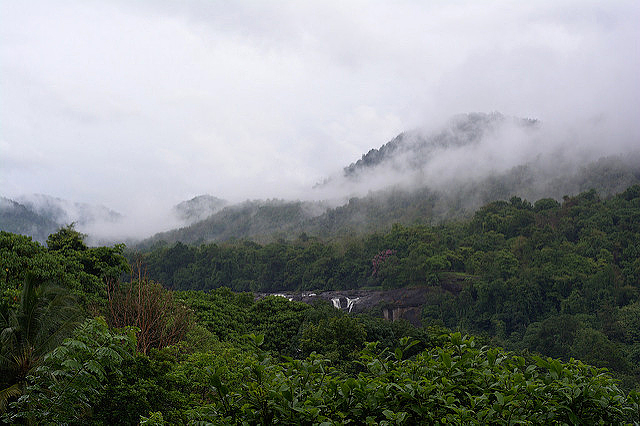The state of Kerala has apparently not counted on the strenuous opposition of the Kadar to government plans for proceeding with a big hydroelectric power project on the Chalakudy River. The small, peaceful tribe of about 2,000 people staged a demonstration in March to show the importance of forests to their way of life. Now they are gearing up for a battle with the state in opposition to the dam.

The Hindu ran two news stories in the middle of last week describing the latest developments. The journalist writing for the paper, K.S. Sudhi, makes it clear at the outset of the first article on May 31 that the Athirappilly (also spelled Athirapally) forests, in the Thrissur District of Kerala, are essential to the Kadar people.
They subsist primarily on so-called non-timber (or “minor”) forest products such as honey that they gather and trade with others for their essential needs. They also take day laboring jobs for income. The new government ministers for the state, particularly the Chief Minister Pinarayi Vijayan and the minister for power, Kadakampally Surendran, have announced that the administration will be moving ahead with the project. The new government just took office on May 25th.

Ms. V. K. Geetha, the Oorumooppathy (the female chief) of the Kadar announced that the tribal council, called the Oorukoottam, would be meeting shortly to decide on its course of action. She said that the Indian Supreme Court has ruled in favor of tribes having the right to decide whether or not to allow projects on their tribal lands. “We won’t let the government play with our lives anymore,” the woman told the journalist.
Her words, as quoted by the paper and backed up in the past with her actions, show the determination and abilities of this formidable leader. “No State or the Central government can implement any project here without our consent. The permission of the tribal people is mandatory even for plucking a leaf from here. We will go to any extent to protect our rights,” she told The Hindu.
The rights of the Kadar that Ms. Geetha referred to are guaranteed by Indian law, the Scheduled Tribes and Other Traditional Forest Dwellers (Recognition of Forest Rights) Act of 2006. The act guaranteed tribal peoples Community Forest Rights, which are enforceable by law. The permission of a tribal council is necessary for any projects in a forest over which they have jurisdiction.

The Indian Supreme Court recently upheld the right of a different tribal council, that of the Dongria Kondh in the state of Odisha in eastern India, to stop a development they opposed. They used the provisions of the Forest Rights Act to block a $1.7 billion mining project by a huge firm, Vedanta Resources, in the Niyamgiri Hills. The company had sought to mine a rich seam of bauxite in the sacred mountain of the Dongria.
According to The Hindu, the decision of the court in that case strengthens the determination of the Kadar to use the same national law to their own advantage as well. The Kadar council last August had rejected the Athirappilly project, so it was clear from the news report of May 31 that their leaders were deciding on the strategy they wished to pursue.
The Hindu on June 1 gave further information about what they are doing to stop the dam project. Ms. Geetha and the village council, called the grama sabha of Vazhachal, have separately approached the High Court, through petitions presented by their counsel, P. B. Krishan, to block the environmental clearance granted for the project. According to the attorney, the petitions “have been admitted by the High Court.”

The contention of the petitioners is that the proposed project would forcibly displace the Kadar from their constitutional rights to their lives and their livelihoods in the forests surrounding the Athirappilly Waterfalls, where the dam is planned. They further contend that they have been forced to move down out of the mountains by earlier hydroelectric dams higher up the Chalakudy River, but no forests or mountainous areas remain farther downstream for them to move to.
The petitions point out to the court that the state government has ignored the provisions of the Forest Rights Act by trying to retrospectively issue clearances and to ignore the rights of the grama sabhas. These government actions were arbitrary and illegal, the petitions argue.